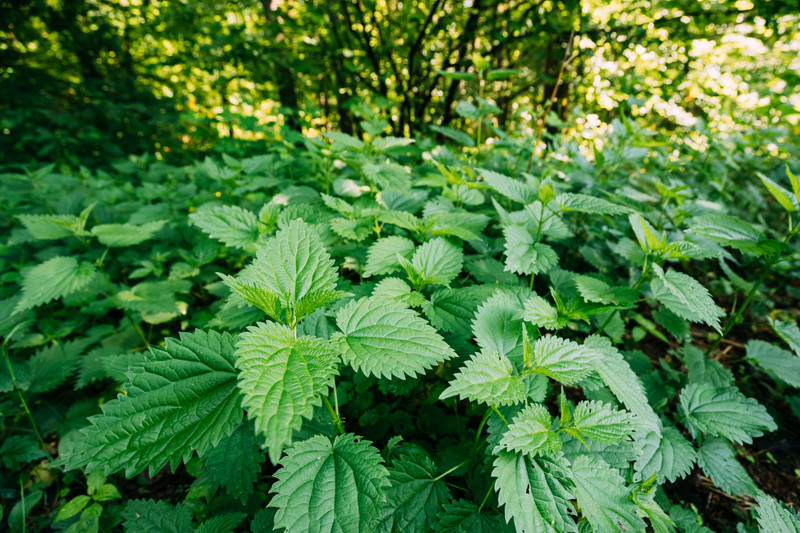Stinging nettle is an herbal supplement with a few different potential benefits. Here’s a look at the background of this unique plant, and the ways that a stinging nettle supplement could benefit your health. And don’t let its name frighten you; it won’t cause you any pain if you ingest it while supplementing with it.
What Is Stinging Nettle?
Stinging nettle, scientifically deemed Urtica dioica, is a wild herbaceous perennial plant that grows on four separate continents: North America, Europe, Asia, and (North) Africa. Growing to an average of two meters in height, stinging nettle is named for its toothed, trichome (plant hair)-laden leaves, some of which sting upon human contact.
The stinging nettle plant is alive and well as a commodity of its own. Stinging nettle has long been used for a range of health purposes, including seasonal allergies and arthritis. The leaves are abundant in vitamins, minerals, and other naturally healthy compounds. These contribute to, among other benefits, its anti-inflammatory properties. Some of the medicinal benefits of stinging nettle are particularly applicable to men. Stinging nettle also has multiple uses in agriculture, such as in the production of fertilizer.
Benefits of Stinging Nettle
The healthy properties of stinging nettle are many. As a result, it has the potential to mitigate ailments and benefit human health in many ways. Here are some of the most embraced and studied benefits of supplementing with stinging nettle:
Reducing benign prostatic hyperplasia (BPH) is one of the foremost medicinal benefits of stinging nettle. Stinging nettle has been proven and long known to be an effective herb at reducing enlarged prostate. Science shows that this is a result of its direct effect on reducing the proliferation of growth of prostate cells in men with BPH. This is because of certain substances contained in stinging nettle, which interact with prostate tissue in ways that reduce BPH. Stinging nettle can help reduce the symptoms associated with BPH, as well.
Type II diabetes: Those with type II diabetes would likely benefit from stinging nettle, given that this herb has been shown to reduce fasting blood sugar levels in those with type II. This is probably because stinging nettle inhibits enzymes which carry out carbohydrate digestion. Science suggests that stinging nettle could also reduce blood triglyceride levels, and increase positive high-density lipoprotein cholesterol, which both are beneficial to those with type II diabetes.
Inflammation: Stinging nettlehas been shown to reduce inflammation by inhibiting multiple chemical pathways in the body that cause it. As a result, supplementing with stinging nettle could help reduce the inflammation-driven symptoms of arthritis, as well as other conditions like gout and chronic myalgia. This has potential to help in many other ways, too.
Hay fever, or seasonal allergies, could be mitigated by taking stinging nettle. This benefit is largely a result of its anti-inflammatory properties, but should be considered a point of its own because so many people experience hay fever. Stinging nettle can reduce the inflammation which causes hay fever symptoms, especially if taken when symptoms first occur.
This spring, consider why taking stinging nettle could help you – whether the intent is to prevent allergies, reduce inflammation, or otherwise. It’s recommended that you talk to your healthcare provider before taking stinging nettle for the first time.

